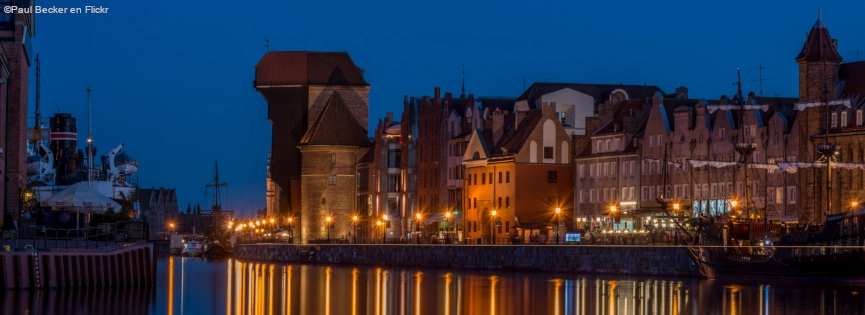Main content
The City of Gdansk 2019 Princess of Asturias Award for Concord

Capital of Pomerania and the country’s main port, the Polish city of Gdańsk is currently the lead city of a metropolitan area, together with the towns of Gdynia and Sopot, that exceeds one million inhabitants. With a history marked by its strategic location on the Baltic Coast and having belonged to different entities and states, Gdańsk –then known by its German name, Danzig– became a Free City under the auspices of the League of Nations as a result of the Treaty of Versailles, which brought World War I to an end. With a large German population, Gdańsk was the scene of what is considered the first battle of World War II, when, on 1st September 1939, the Nazi army invaded Poland via the Westerplatte Peninsula, facing the city, where a scant garrison of Polish soldiers managed to heroically hold out for a week in inferior conditions. Following the Allied victory, an almost entirely destroyed Gdańsk was annexed by Poland, which led to the expulsion of its German inhabitants. Decades later, the first pockets of opposition to the communist regime arose in the city, its shipyards giving rise to the Solidarity trade-union movement, which was to become a leading force in the 1989 overthrow of the regime. In 1990, the leader of Solidarity, Nobel Peace Prize-winner Lech Wałęsa, became the country’s first democratically elected president since 1939.
Having become the symbol of resistance against Nazism and the fight for the recovery of freedom in Europe, the 1st September, the city of Gdańsk commemorated the 80th anniversary of the start of World War II in Westerplatte, under the motto “United above and beyond differences, to pay tribute to victims and heroes and bear witness to the scale of human tragedy, heroism and sacrifice”. Considered a welcoming, generous city, since the restoration of democracy in Poland thirty years ago Gdańsk has stood out for its dynamic economy, openness, civic cohesion and tolerant nature, especially through programmes aimed at the integration of immigrants and defence of the LGBT community. Of its almost half a million inhabitants, more than 20,000 are foreigners, most of them refugees from countries of the former USSR, as well as from other areas of conflict, such as Rwanda and Syria. In 2016, the City Council of Gdańsk published a document entitled “Model of Integration of Immigrants”, which develops a management system in public institutions and social organizations in the city to facilitate the integration of refugees and immigrants in areas such as education, culture, social care, housing, employment and health. Furthermore, an advisory council was formed, composed of twelve representatives of immigrants and two refugees, which is responsible for transmitting the needs and concerns of this group of people to the local authorities. In 2018, Gdańsk approved a “Model for Equal Treatment” to improve the conditions of the most vulnerable social groups.
The momentum behind the social policies developed by Gdańsk is attributed to its mayor over the last two decades, Paweł Adamowicz, who occupied this office from 1998 until his stabbing and subsequent death during a public event held in January of this year. The current mayor of Gdańsk, Aleksandra Dulkiewicz, replaced Adamowicz in office until the early elections held last March, in which she was elected with 82% of the vote.
End of main content
